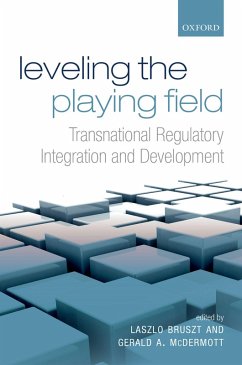Emerging market countries are currently facing a dual challenge. How to incorporate transnational regulations into their societies, while building their own versions of regulatory capitalism. This raises a multitude questions and challenges. Will the diffusion of international public and private regulations of developed countries, benefit a few and marginalize less developed countries? Or, can these regulations foster transnational public-private experiments to improve local regulatory capacities and social conditions? What kinds of strategies might facilitate or impede both transnational regulatory integration and local institutional upgrading? This book offers a fresh perspective in reconciling the seemingly incompatible goals of transnational integration and development. It offers a new analytical framework and a set of case studies that help forge a comparative analysis of integration and development. It offers both the identification of the mechanisms that can foster lasting transnational integration settlements and broad based domestic institutional and economic upgrading. This multidisciplinary study draws on current research from many leading scholars. They analyse issues in a variety of regions around the world and in industries and domains ranging from food safety, manufacturing, telecommunications, finance, as well as labour and environmental rights. The chapters reveal concrete lessons for scholars and practitioners alike, around the different roles and strategies that governments, the multilaterals, firms, and NGOs can take, to facilitate the integration of international standards, improve domestic institutions, and expand the benefits to a great variety of local groups.
Dieser Download kann aus rechtlichen Gründen nur mit Rechnungsadresse in A, B, BG, CY, CZ, D, DK, EW, E, FIN, F, GR, HR, H, IRL, I, LT, L, LR, M, NL, PL, P, R, S, SLO, SK ausgeliefert werden.


